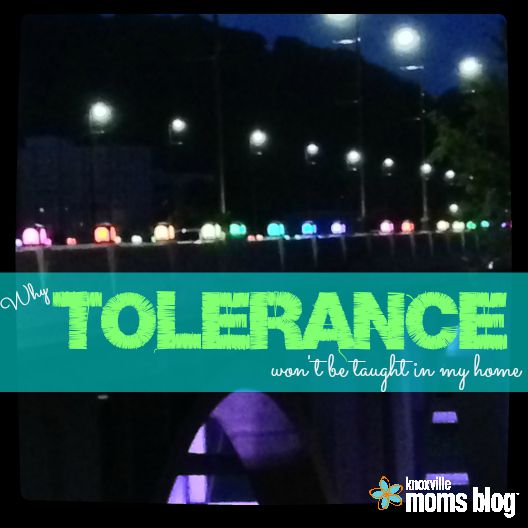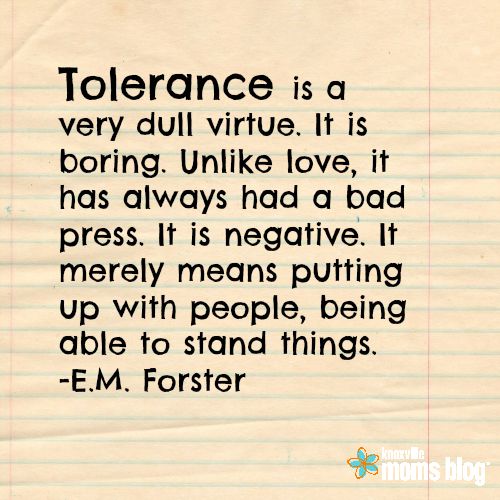I have never liked the word tolerance. I know it is not necessarily a negative word, but I often hear it used in semi-negative contexts. “Tolerate” is often used in place of “put up with.” For example, “I don’t like green beans, but I tolerate them.” The idea of using “tolerate” in reference to diverse groups of human beings seems odd to me. The word “tolerance” has a connotation of dislike or disdain. Why would I want to teach my children that it is okay to hold disdain for other individuals as long as they throw in the word tolerance?
I think that tolerance is sometimes a justification that individuals use to continue their discriminatory thoughts and actions.
Now, before I go any further, I know that the word tolerance can be used in a myriad of ways and not all contexts are negative. However, just as some people choose to eliminate certain words from their family’s vocabulary (stupid, shut-up, etc.), I am choosing to get rid of the word tolerance. Instead, I want to embrace words such as respect and love. I hope to raise my son to keep his mind open and to realize that there are so many people who may act or think differently but that we should love and respect them anyway.
I believe that every individual has an inherent worth, and because of that inherent worth, I believe that every individual has the right to all of the privileges afforded to us as American citizens.
With events that are current in the news, I see social media ablaze with phrases such as, “love the sinner, hate the sin.” Here is why I do not like that phrase. Sometimes, what some individuals label as “sin” may actually be a part of someone’s identity. So when we throw that phrase around to people who are different from us it comes across as hate–whether it was intended that way or not. It is no secret that kids can be cruel. There is always a lot of concern over bullying and teasing in schools. However, when you see the types of messages being portrayed in their homes, it should come as no surprise that the kids would turn around and bully their peers. I think a lot of times parents (myself included) flippantly make comments that we do not foresee as having a negative impact on how our children see the world. These comments are usually in the form of “innocent” jokes. The problem is that these “jokes” about topics such as gender, race, and sexual orientation are perpetuating a culture of discrimination. When children hear these comments they may not be able to discern what is a “joke” and what isn’t.
I have tried to be very careful of the terms, words, and phrases I say around my son because I do not want to negatively impact his beautifully innocent perception of the world. I know a lot of people become defensive over feeling forced to be “politically correct.” However, I am of the persuasion that if a word, phrase, or symbol offends someone, why would I want to continue throwing it in their face? Replacing the idea of tolerance with respect helps to perpetuate a different mindset about how we view others.
Skills that are vital in transforming tolerance into respect and love are self-awareness (how does this make me feel/react?), self-reflection (how can I use this reaction to improve myself?), and empathy (how would I feel if I were in this person’s shoes?). {Lisa wrote two great posts (find them here and here) about instilling empathy in our children.}
Being able to go through this process is something that we as parents need to first begin to practice before trying to help our children incorporate it into their interactions. Implementing these skills into my life is an on-going process. Unfortunately, I do not utilize them in every situation. However, when I do incorporate self-awareness, self-reflection, and empathy into my interactions with people, I notice that negative feelings decrease while positive feelings increase… and who wouldn’t want to feel good and happy?



















